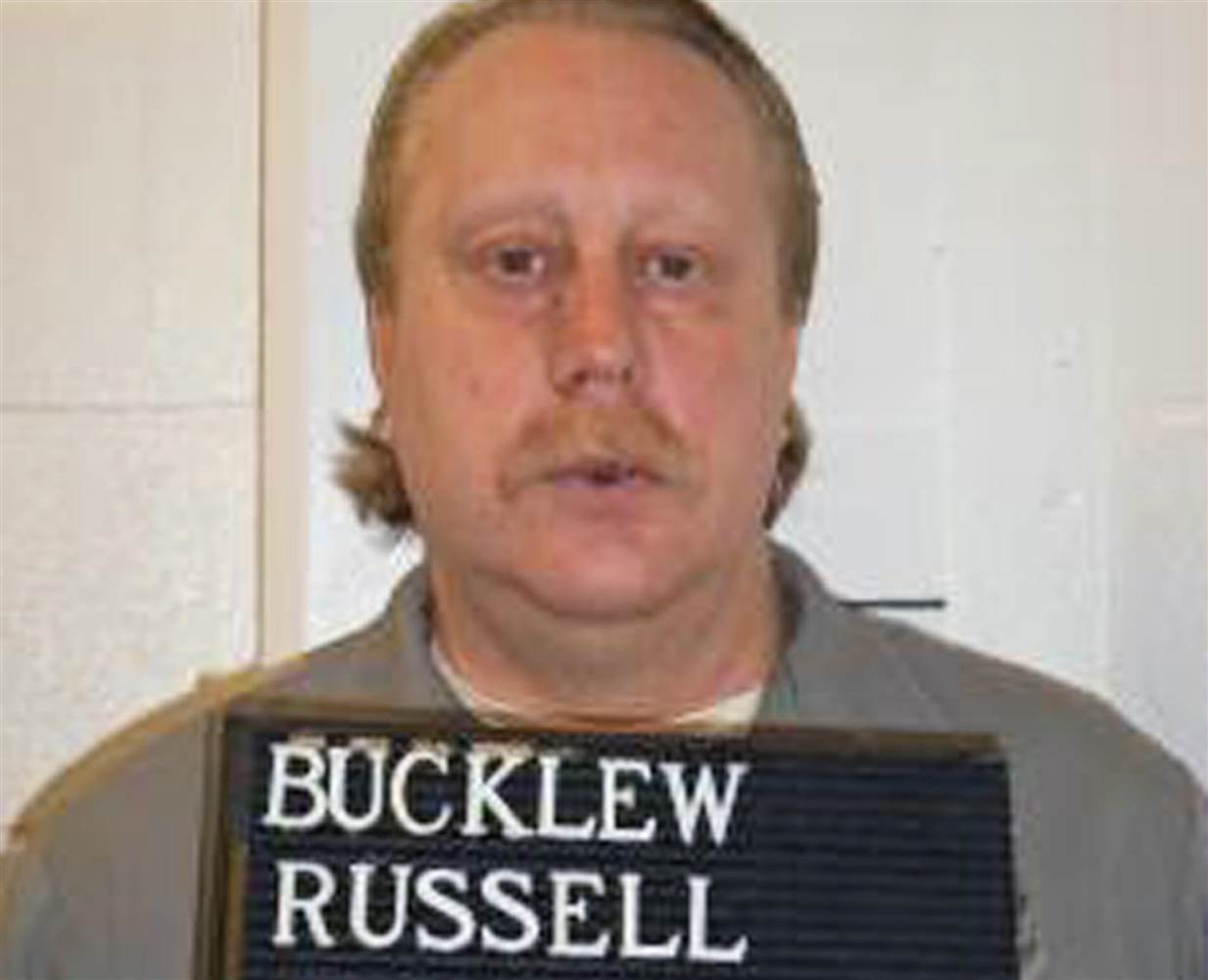JEFFERSON CITY, Mo. — Just one week before Russell Bucklew is set to be executed by the state, his lawyers met with members of Gov. Mike Parson’s office to seek commutation.
Bucklew, now 51, was convicted of murder in 1997 for the March 1996 shooting death of a man his ex-girlfriend had begun to live with. He had reportedly stalked, kidnapped, beat, and raped his former girlfriend, who is now deceased.
Bucklew’s attorneys maintained he is now a “fundamentally different person” from when he committed the crimes. They said he is “incredibly remorseful for his conduct and the pain and suffering he caused,” in a petition for clemency to the governor.
But furthermore, his attorneys alleged if the state continues with its plan to execute Bucklew by lethal injection on Oct. 1, he will suffer an “excruciatingly painful death” because of “unstable” tumors filled with blood in his face, head, and throat. He suffers from a rare, incurable disease called “cavernous hemangioma.”

“Russell’s compromised medical condition make[s] it highly likely that the state’s protocol will cause a visually gruesome execution that will traumatize corrections personnel and witnesses alike,” his attorneys alleged, providing pictures of Bucklew’s face in the petition.
Bucklew’s attorneys met with members of the Governor’s Office Monday to ask he take into consideration a host of factors — his unique medical condition, a “false” psychiatric diagnosis during trial, and his remorse — in considering clemency.
Laurence E. Komp, a federal public defender, praised those at the meeting for a “productive” session.
“We’re thankful for the opportunity to present to them. I found they were prepared and asked the kinds of questions you would expect anybody entrusted with advising the governor. I felt it was a positive meeting,” Komp told The Missouri Times. “What does that mean? I don’t know. I felt we were appreciative of the opportunity.”
“We readily acknowledge that this is a horrible tragedy, and there is a just punishment. Our dispute is that the appropriate punishment in this case is not the death penalty,” Komp said.
“The Governor takes seriously both his duty and responsibility to see that lawfully entered capital sentences are carried out in accordance with state law,” Kelli Jones, Parson’s spokeswoman said in a statement. “Each case of capital punishment will be thoroughly reviewed before any decision for pardon or clemency is made.”
Jones noted, however, the Republican governor “has consistently supported capital punishment when merited by the circumstances and all other legal remedies have been exhausted and when due process has been satisfied.”
Elyse Max, the state director for Missourians for Alternatives to the Death Penalty (MADP) said this case in particular could be a “stain” for Parson and sets up Missouri to “define what is torture for the rest of the nation” when it comes to capital punishment.
“This case is particularly troublesome because with the medical condition of Russell Bucklew, we know it’s going to be a particularly tortuous execution,” Max told The Missouri Times, noting MADP has planned a rally in the Capitol building with citizens and lawmakers Thursday.
Bucklew’s case went all the way to the U.S. Supreme Court. In April, the nation’s highest court issued a narrow ruling against Bucklew’s request for a different manner of execution.
Should the state continue with its plans for execution next week, Bucklew will become the 89th person to be put to death in Missouri since the U.S. Supreme Court reaffirmed the use of capital punishment in 1976. He will be the first under the Parson administration.
But Bucklew’s attorneys argue that he is reformed and not a danger to others.
“Russell is now 51-years-old, suffers from a host of debilitating medical infirmities and has demonstrated through his actions that commuting his death sentence would be an act of compassion leading to just punishment,” the petition said.
Bucklew is being held at the Potosi Correctional Center near Mineral Point.
 Loading...
Loading...
Aside from Bucklew, there are 22 other people in Missouri who are capital offenders, according to the Missouri Department of Corrections.
Missouri allows the death penalty — by lethal injection or gas — which is overseen by the Department of Corrections. The death penalty can be imposed on individuals who are at least 18 years old and found to have deliberately committed first-degree murder, a class A felony.
The law instructs jurors to consider certain evidence, including the perpetrator’s past record, when considering the death penalty.
Individuals who are found to have a mental disease or inability to “understand the nature and purpose of the punishment about to be imposed upon him or matters in extenuation, arguments for clemency or reasons why the sentence should not be carried out,” should not be executed, according to state law.
https://themissouritimes.com/62677/a-look-at-missouris-death-penalty-laws-history/

Kaitlyn Schallhorn was the editor in chief of The Missouri Times from 2020-2022. She joined the newspaper in early 2019 after working as a reporter for Fox News in New York City.
Throughout her career, Kaitlyn has covered political campaigns across the U.S., including the 2016 presidential election, and humanitarian aid efforts in Africa and the Middle East.
She is a native of Missouri who studied journalism at Winthrop University in South Carolina. She is also an alumna of the National Journalism Center in Washington, D.C.
Contact Kaitlyn at kaitlyn@themissouritimes.com.























